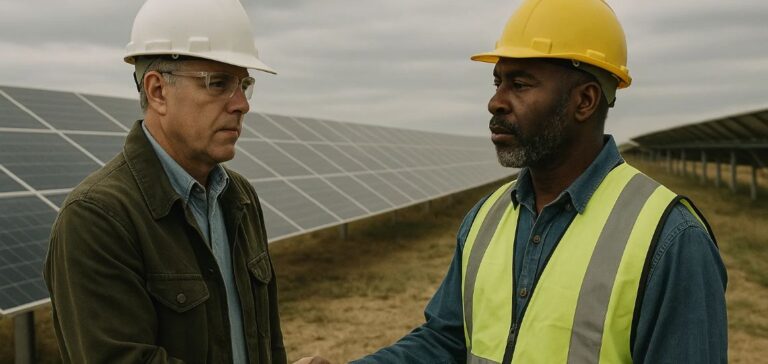US-based solar cell manufacturer ES Foundry has entered into a three-year, 150-megawatt (MW) supply agreement with a major national community solar project developer. The agreement involves the delivery of Bloomberg New Energy Finance (BNEF) Tier 1 solar modules incorporating ES Foundry’s locally manufactured cells. The contract aims to enhance supply chain security for the developer and maximise the benefits of local content under US solar tax incentives.
Strengthening domestic production capacity
This deal enables the project developer to expand its portfolio nationwide while meeting local content requirements under the Investment Tax Credit (ITC) scheme in the United States. Amid ongoing global supply chain pressures, ES Foundry provides a stable and competitive industrial solution for solar developers seeking secure access to essential components.
According to recent data from the Solar Energy Industries Association (SEIA) and consultancy firm Wood Mackenzie, the United States installed 50 gigawatts (GW) of solar capacity in 2024—a record for any energy technology in over two decades. Solar accounted for 66% of the total new electric generating capacity added nationwide during that period.
Supporting the developer’s growth strategy
For the solar developer, securing a dependable supply of high-quality, locally produced solar modules is a strategic move to scale its long-term projects. This partnership aims to solidify its ability to deliver projects on time and at scale, particularly in a market environment increasingly valuing domestically sourced components.
Ken Johnston, Vice President of Sales at ES Foundry, stated that the partnership demonstrates “how developers can proactively structure their internal supply chains,” adding that the company’s goal is to deliver high-quality solar cells on a reliable timeline. The agreement also aligns with national industrial ambitions to strengthen energy independence and reinforce local manufacturing capacities within the renewable energy sector.






















